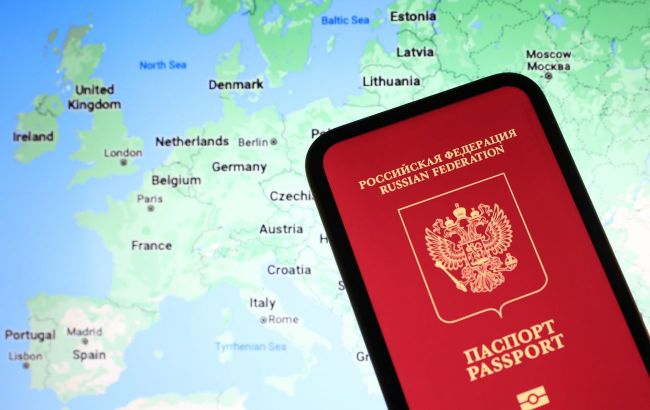Loophole to Europe: EU concerned about flow of Russians to Kaliningrad
 Traveling with Russian passports to the EU (gettyimages.com)
Traveling with Russian passports to the EU (gettyimages.com)
Russians continue to travel to Europe despite sanctions and restrictions. The EU is concerned that a railway route to Kaliningrad through Lithuania is being utilized for this purpose.
In 2023, 14,000 people used this entry route to the EU, according to schengenvisainfo.com.
Russian passengers traveling to Kaliningrad on the Baltic Sea coast by trains through Lithuania can disembark in the village of Kyana and travel from there to the EU, as reported by the Center for European Policy Analysis (CEPA). In 2023, 14,000 people entered the EU using this route, twice as many as in 2022.
"While many have papers that would allow travel to Lithuania by other routes, the threat of Russian agents or military personnel using the railroad as a backdoor to the West should not be underestimated," the report says.
In June 2022, Lithuania banned railway transportation of sanctioned goods to Kaliningrad. Later, the EU revised its guidelines, allowing only automobile transportation of sanctioned cargo, and railway transportation through Lithuania resumed.
According to CEPA, despite attempts to limit the number of train passengers to 300 and additional EU funding to enhance security, Lithuania does not have a clear position on the scale of the threat and measures to close the loophole.
In October 2023, the Lithuanian State Border Guard Service (VSAT) explained that stopping the flow of people by rail is difficult because citizens from other countries also use the route.
"For example, last year, 1,000 Israeli citizens, 800 Lithuanian citizens, about 200 Italian citizens, about 200 German citizens, about 200 Ukrainian citizens, and about 150 US citizens got off the train here," said VSAT spokesperson Giedrius Misutis.
At the same time, according to Polish border guards, in 2023, in just 5 days at the end of December, 17,000 people crossed the border between Poland and the Kaliningrad region to reach Russia for Orthodox Christmas. This is due to the absence of flights between the EU and Russia.
As previously reported, Russians continue to travel to Europe for vacations despite restrictions due to sanctions. Flights through third countries with layovers take up to 15 hours.
Russians are also prohibited from bringing cars and a range of personal items into the EU – from phones to luggage and cosmetics. Importing them may be considered illegal.

